Other Recent Articles
French Country Life Faux Pas
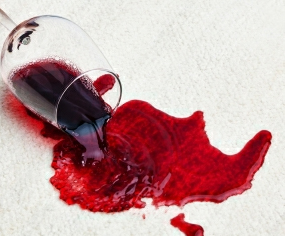
French Country Life Faux Pas (that’s “foe-paws” to my fellow high school dropouts) are not, for me “social errors.” (Tasting the wine before your host being the ultimate no-no.)
Alas, non, pour moi the Faux Pas of French Country Life are the rules, rituals, and traditions in that lifestyle that get up my nose!
True, every country has it’s idiot-syncricies. It’s particular take on logic, reason,efficiency, public service and the “right” way to do things. As I explained in THIS POST.
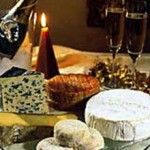 What to the locals seems as logical as wine with cheese often morphs into what we exotic strangers from the far away lands consider unusual, eccentric, illogical weird, and ocassionally, disgusting.
What to the locals seems as logical as wine with cheese often morphs into what we exotic strangers from the far away lands consider unusual, eccentric, illogical weird, and ocassionally, disgusting.
But, when you plant your tent here permanently, obviously you must, as much as possible, ignore or somehow deflect these French Faux Pas
I can recommend pretending you’re on the set of a Goddard movie (“Fauxpasville?”)and/or enjoying more wine than usual. (Never before/while driving, bien sur.)
And, ridiculing them and their (to us) bizarre ways in print, can get you exiled to the other side of the Mountain. As one Famous Author discovered.
Here then are a few of the Faux Pas of French Country Life through which I am obliged to navigate:
YOU CAN’T GET IT HERE
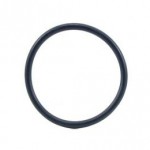 True, no traveller, not even the “wet behind the ears” variety expects to find all the conveniences and comforts of home available 24/7 in the Foreign land of their dreams.(Expect perhaps residents of Palm Springs and Nob Hill)
True, no traveller, not even the “wet behind the ears” variety expects to find all the conveniences and comforts of home available 24/7 in the Foreign land of their dreams.(Expect perhaps residents of Palm Springs and Nob Hill)
But, an “o-ring?” – that ever so helpful(and absolutely essential) circle of rubber that seals the inside of stovetop espresso maker – not on the menu! You need to buy a whole new unit.
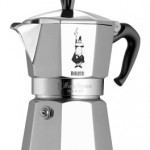 But wait – there’s more – that whole new unit – mimicking the form of the grand classic robust solid Italian espresso that you discovered when Chianti was a pup, is, quelle suprise, no longer robust, solid or Italian.
But wait – there’s more – that whole new unit – mimicking the form of the grand classic robust solid Italian espresso that you discovered when Chianti was a pup, is, quelle suprise, no longer robust, solid or Italian.
It now hails from China. Made from a tissue thin metal that is just this side of transparent.
YOU CAN SEE IN THE DARK – RIGHT?
At some point in the pre-history of this cheese chomping Nation, a major genius (unknown, but probably a politician – or a bureaucrat dreaming of becoming one) decided that it would be a great energy saver to have hallway lights in apartment buildings, turn off after a minute or so.
While this probably did save a certain amount of energy then, it was certainly offset by the medical bills of the elderly, who for some reason needed more than a minute to get up to the third floor in their elevator-less building.
(Furniture movers deal with this one every day.)
SPRING STARTS ON APRIL 15

SO – you won’t be needing those radiators on in your apartment anymore – will you? And if “Spring” is late? Well – hey – that’s what sweaters, blankets and exercise bikes are for.
(Author’s Note: even in the countryside, there are apartments. Usually filled with Seniors.)
YOU DIDN’T MEAN TO DO THAT – RIGHT?
One of the greatest of the French Country Life Faux Pas is one you’ll grok instantly. Because it exists in every country. (that would be…uh…like… International?) It exists to confuse, delay, inconvenience, and, of course, enrage. “It” is Bureaucracy. Every country has one. All of us,sadly some more than once, have been ground in the monster’s gears.
Here’s an example of the French variety:
You mail an innocuous document (and aren’t they the best kind?) to the City Hall. A week passes. No return mail. OK – not a big deal. Two weeks. You’re starting to wonder if they have your address. Three weeks. Still no acknowledgement.
OK – it’s not a life and death situation, but still….so you phone the City Hall. They put you through to the correct department. Where nobody knows nuthin’ about your form. Because “Mr. X” would have handled it and he’s (you’re ahead of me already aren’t you?) yes – on vacation!
6 weeks after you sent the form, Mr. X (now suitably relaxed and bronzed we assume)writes (functionaires never ‘phone)to inform you that you filled out the form in Blue ink! When you should have used Black!
But wait – that’s not the kicker. The kicker is – if you hadn’t phoned – he would never have told you!
PROTECTIONISM OR PARANOIA?
This example, while not literally a French Country Life Faux Pas, is at least worthy of the “bizarre” label.
There are 60 varieties of potatoes that are illegal to grow in France. One of them is called : “The Clinton.”
And so it glows.
THROW ME A BONE HERE, PEOPLE!
What are ya thinkin’?
French Country Life Travel Flavors

French Country Life Travel Flavors. They come in all shapes, sizes, colors and textures. I’ve been lucky enough to taste many. But not all. Never all. That’s why I’m Still at it.
Still glidling down sun dappled country backroads tasting the wine, the food, the land, and most importantly, the people. Then sharing these authentic slices of French Country Life with you. (that is why you’re here – right?)
France has been good to me. As I revealed in THIS POST. But my greatest Treasures of France on my French Country Life Travels have been the unexpected ones .Don’t you find that to be so?
Naturally, before embarking on any adventure, you have dreams, expectations, cliches dancing around in your head. Some prove to be true. Others not. But, in my experience, and I imagine in yours, the greatest “gems” are the ones you never could have imagined. N’est ce pas?
While my “raison d’etre” is to continue filming and sharing my travels on the French Country Life backroads, there is one aspect I can’t share:
It’s the obvious personal one. The memories that call out to me from each frame of film. Taking me back, in minute detail, to the place, time and situation of our happy collison.
I’m sure you’ve had a similiar experience with whatever personal image making you’ve been involved with. For that’s what images are all about – “hostages against time” – as the English photographer David Bailey describes it.
Every personal image, be it film, video, or photograph freezes an emotional moment. And in doing so, makes it immortal. It remains constant and fresh. While we, sadly, do not. Perhaps that’s why we’re so drawn to, images?
So, although I can’t share my emotional moments of these Flavors of French Country Travel Life with you – perhaps they’ll stir a few emotions in you. Ones that might inspire you to begin an adventure of your own. (preferably with images!) Bon appetit!
THROW ME A BONE HERE, PEOPLE!
What are ya thinkin’?
French Wine Courtesy Of China
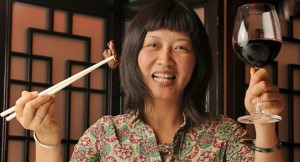
French Wine Courtesy Of China. What, China is giving the World French Wine? Close, but no cigar. China is giving the World the opportunity to BUY the less expensive big name French Wines. How? Why? – Because it’s slurping up all the expensive ones.
This has put the (ever so subtle) pressure on the grand French Chateaus to keep their quality high for what in bordeaux they call the “second wine.”
The San Francisco Chronicle’s Michael Epstein has the liquid details:
“Today they must be good because they are a true and authentic introduction to the estate,” says John Kolasa, managing director at both Château Rauzan-Ségla in Margaux and Château Canon in St. Emilion. “Your name is on the label.”
Historically, most second wines from the Médoc were sold in French supermarkets, according to Emmanuel Cruse, owner of Château d’Issan in Margaux, and few producers cared about their quality. Only a rare chateau would make a third wine; Latour, for example, introduced its third wine, labeled simply Pauillac, in 1990 to enhance the quality of its second wine, Les Forts de Latour.
But over the last decade, as the prices of the standard-bearer wines escalated, in large part due to demand from China, producers realized there was real money in promoting their second wines. The notion of sloppy seconds has vanished.
“Ten years ago, there were perhaps five to 10 (second wines) that merited attention. Now there are scores of them,” notes Christopher Shipley, former sommelier at the 21 Club in New York and currently U.S. sales director for Joanne, a large importer of Bordeaux.
The numbers are one reason why chateaus are smiling. At third-growth Chateau Palmer, annual production of its top wine fell from 15,000 to 20,000 cases to about 10,000 cases since the winery’s 1998 introduction of a second wine, Alter Ego de Palmer. But not only did the quality of the grand vin increase enormously – so did the price, from about $80 a bottle upon release for the 1996 to $350 for the 2009. The 2009 Alter Ego – about 6,000 cases – sells for $80 a bottle.
Although it’s not clear which chateau made the first second wine, the concept became entrenched when Chateau Latour introduced its second wine with the 1966 vintage. Now, most properties in the Médoc, Pessac-Léognan, on the Right Bank and even in Sauternes, make one.
Typically, second wines are made from younger vines or parts of an estate that historically made inferior wine. Young vines, which for Cruse are less than 18 years old, can make good wine. But, he points out, they can be inconsistent.
Initially, Bordeaux vintners made these seconds to bolster the quality of the first wine – in large part to win the race for critics’ scores and also to protect a chateau’s reputation. But Rauzan-Ségla, unhappy with its 1987 vintage, bottled its entire crop under its then second label, Château Lamouroux. (Today, Ségla is the label for their second wine.)
Choosing only the very best for top wines has become a virtual necessity as prices have spiraled.
“Selection is the key for making good wine,” says Marcel Ducasse, who before his retirement was largely responsible for the dramatic 1980s turnaround at St. Julien third-growth Chateau Lagrange.
When Ducasse took over at Lagrange, everything from the harvest, including press wine, went into the blend for just one wine. It was, he says, a “fosse commune” – everyone in the same grave.
Now, Lagrange makes at least three and sometimes four wines, with the grand vin representing less than half of total production. Its second wine, Les Fiefs de Lagrange, plus bulk wine and other discarded lots, comprise the other half. While improvements in the vineyard can take a decade, Ducasse points out, selection can improve a wine overnight.”
Bottom Line : Will the Chinese become more influential than Robert Parker?
Read more HERE.
